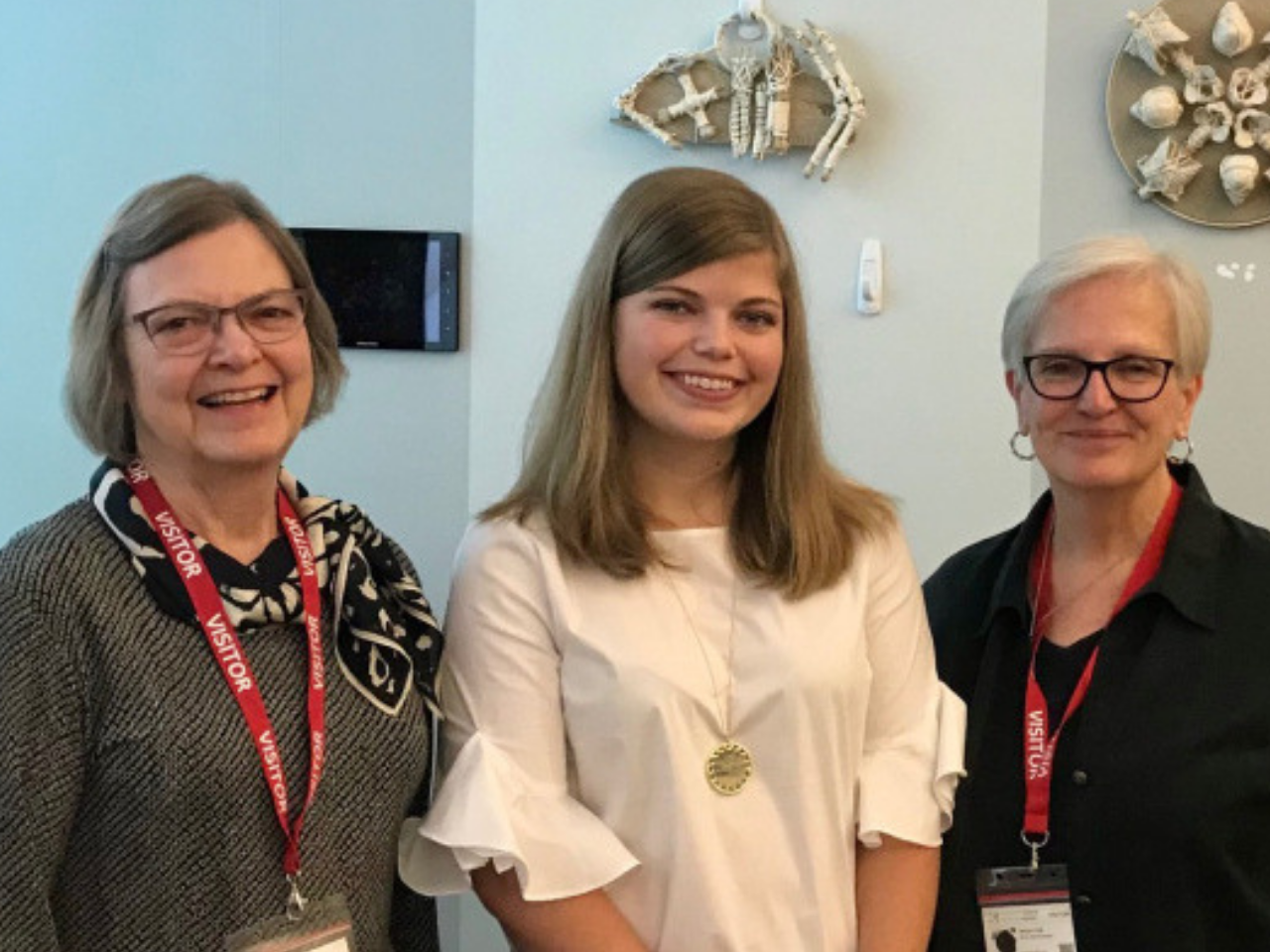
In September, our Raleigh-Durham office hosted their first Art of Advocacy event, which explored how art can be used as a platform for advocacy. The event showcased three artists, from across the U.S., living with a chronic illness, who use art as a medium to cope, spread awareness, and encourage others. We invite you to meet them and learn more about their stories below.
Carol, artist and osteoporosis patient advocate:
As an artist, Carol creates handmade paper, handmade books, and woodblock prints. After being diagnosed with osteoporosis and redefining her art forms to what her body could handle, she was inspired to create works of art to better reflect the condition. She began by making her garage a handmade paper studio, where she sculpted bones out of a variety of materials and in many forms, to later put the bones together to create works of art. Her first pieces were attached to linen in a round wooden loom. Read more about Carol’s art.
Hunter, dancer and Crohn’s patient advocate:
Hunter is a vibrant young woman who recently graduated from the University of North Carolina with a degree in biology. Hunter and her younger sister were diagnosed with Crohn’s disease at different ages, and with completely different patient journeys. As part of the event, Hunter walked UCB colleagues through a dance she performed with her sister depicting their unique journey of diagnosis and remission. Her movements and words blended together to paint a powerful picture of her experiences and was a reminder of how a severe disease can affect many aspects of a person’s life.
Marla, American Sign Language interpreter and epilepsy patient advocate:
“When you laugh at yourself, that’s 99% of living with a better attitude about epilepsy.” - Marla
Marla had the unique opportunity of traveling and signing onstage with a performance theatre. She uses sign language to interpret the performance for audience members who may be deaf – illustrating the art of theatre in a way that can be understood and enjoyed by all. After being diagnosed with epilepsy and being a single mother raising teenagers, she knew she had to get strong and get honest about her diagnosis. Through her experience, she has found news way to laugh, stay positive, and be thankful for her circumstances.
Stories like these inspire us, and each day we strive to keep them at the heart of everything we do. As we work to deliver new solutions for patients, we know what patients value is profoundly personal, as each individual journey is unique. That’s why at UCB, we want to help people to live their best lives, whatever that means for them.
Choose Country
- Global Site – English
- Australia – English
- België – Engels
- Belgique – Anglais
- Brasil – Português
- България – Български
- Canada – English
- Canada – Français
- 中国 – 中文
- Česká Republika – Angličtina
- Danmark – Engelsk
- Deutschland – Deutsch
- France – Français
- España – Español
- Ελλάδα – Ελληνικά
- India – English
- Ireland – English
- Italia – Inglese
- 日本 – 日本語
- Казахстан – ағылшын тілі
- 한국 – 한국어
- Luxembourg – Anglais
- Luxemburg – Engels
- Magyarország – Angol
- México & Latinoamérica – Español
- Nederland – Engels
- New Zeeland – English
- Norge – Engelsk
- Österreich – Deutsch
- Polska – Polski
- Portugal – Inglês
- România – Engleză
- Россия – Русский
- Slovensko – Anglický
- Suomi – Englanti
- Sverige – Engelska
- Schweiz – Deutsch
- Suisse – Français
- Türkiye – Türkçe
- Україна – Англійська
- United Kingdom – English
- U.S.A. – English



